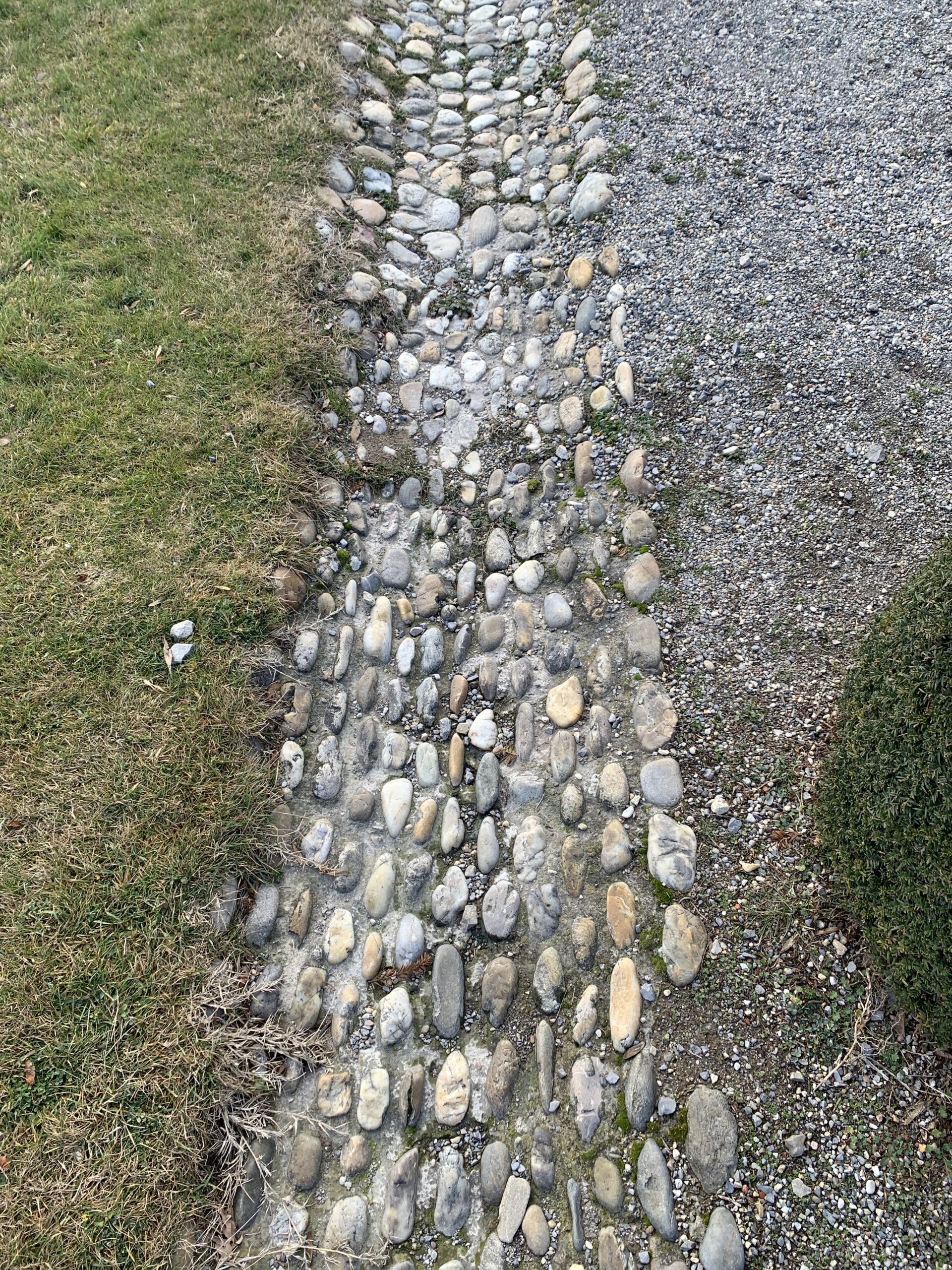When I was pregnant with my first child my sister-in-law asked me “what kind of parent do you want to be?” I paused, knowing the answer was going to be uncommon and figuring out how to word the answer I’ve known for years. I said, “I want her life to be hard.” She looked at me like you probably would, like I was a wretched soon-to-be-parent.
Suffering in life is inescapable. I only want her to be prepared. The only way to prepare her is to manipulate scenarios for her to practice resiliency as she grows up. I wanted to parent her in a way that she would know she can handle hard things because they. are. coming.
Okay, but she’s 3. How do I know she’s tough you ask? Two answers; One – I don’t. Two – she doesn’t really have a choice. The way my husband and I parent her means she will be challenged and pushed. I don’t buckle, I don’t give in. Sure, I pick my battles, but what I’m sharing below is a list of approaches you can take that will at the very least reinforce independence and build belief in herself without my help. I curate the best of my daughter which very often at this stage includes showing her the hard way.
For those of you reading this thinking, damn, she’s way too harsh on a just a little kid, please know that my approach is very age/developmentally specific. I comfort my daughter, I love on her, I snuggle her (when she lets me), I “give in” sometimes and indulge her other times. This is not boot camp and I’m not militant. I do, however, capture every opportunity to teach her in livable moments that she can power through without others’ help which builds confidence and trust in her abilities to handle hard things. Second, kids are beyond resilient and my daughter impresses me daily with how positively she responds to this approach. She will, if I have anything to do with it, enter this world bravely when it’s time for her to go it alone.
So much of what we do is seen by our kids. The first step to all of this is to model how you handle hard things. I received some parenting advice from a good friend of mine. He said “babies raise babies…that’s my big takeaway after watching parents and their kids. People who aren’t babies don’t raise babies.” Except he didn’t use the word babies. “That’s presuming that the parents are actively engaged in the parents process”, he added. This is not a sit-back approach and it’s not easy. But you’re here to do hard things right?
Here’s what I’m doing to help raise a tough daughter. Keep in mind almost each one of these points to a message of independence. I’m trying to teach her she doesn’t need me most of the time, what she needs is to trust herself, be gritty, and keep trying.
- Stop intervening. My daughter was doing a 12 piece turtle puzzle on the couch – one I’d helped her with many times before but this time I decided not to help her. Where previously I would have given her some helpful comments like “try turning it the other way” or “oh! almost! keep trying that piece another way”, this time I said and didn’t nothing. I was amazed. I watched her practice her own patience and persistence while she tried different pieces. She didn’t need my help and finished it all by herself. It took longer, yes, but what she got from doing it entirely herself was an important step to continuing to build confidence.
- Give them one extra “rep”. When she gets frustrated I make her try one more time before I help her. Sometimes her frustration are squeals and grunts and annoying noises that prompt me to tell her, “don’t get upset, just try again a different way.” When she specifically asks for my help I say, “I’ll come help you but try one more time on your own first.” Most of the time her just knowing I’m there to help if she can’t get it is enough to let her calmly and successfully try again. Our general rule is if you haven’t tried at least four times by yourself, you won’t get help. The only time this isn’t applied is if the situation is clearly impossible (or dangerous) for her but that goes without saying.
- Show them their accomplishments. Toddlers are ever present beings. The same walk up the hill she did yesterday today is “too hard” today. She’ll say, “I can’t do this hill, it’s too big”, forgetting that she’s done it countless times. When it gets hard we remind her that once she’s done she can look back at the hard thing she’s done. Hill walking is an awesome example of this. At the top of the hill we turn around and say “look what you just did!”. We talk about how big that hill was and how she just climbed that whole thing all by herself. Praise, praise, praise completion of hard things.
- Apply concepts to other areas. Who doesn’t have The Little Engine That Could in their little kids library? We talk often about “I think I can, I think I can, I think I can” and apply this concept regularly to other situations (hill walks, cleaning up, getting dressed by herself). When we walk up hills as mentioned in #3 when it gets hard we tell her she is The Little Engine That Could. She told us one time on a walk “mommy, I’m just a small blue engine, I’m too small to do it” which couldn’t have been a better opening to remind her that the in the story, the engine succeeded!
- Don’t react to injuries before they do. Kids look to us for what their reactions should be. Anxious mothers produce anxious children. Try pausing when they fall or maybe hurt themselves to see if they really did. My daughter now brushes off a rough fall, walks it off and moves on because I rarely rushed to her with the “awwww are you ok??” bit. Observe carefully. I comfort my daughters scuffs and scrapes with love but don’t spend too much time on them before we get back to what we were doing. Along with this tip goes; don’t reward injuries with sweets or satisfying things like screen time. Consoling kids with indulgences incentivizes “pain or discomfort”. Don’t offer a cookie to “make them feel better”. This does not teach them to manage injury. It tells them that they need something external to heal when what they need is to temper their emotions and control their thoughts. Moreover it falsely reinforces the idea that they get more and better attention when sick than when well – a really awful lesson to teach them in the long run.
- Don’t allow complaining. We go in reverse when whining and complaining happens. If she’s offered a cookies for dessert, for example and complains about it or says she wants candy instead, she now is offered no cookie. It’s this or nothing. You always have a choice, even if the choice isn’t what you wanted – ain’t that life?! Complaining still happens all the time in our house but we bring attention to it and always try to shift the focus towards gratitude for the thing she does have (dessert), often contrasted with what it looks like to not have that thing (no dessert). Sidenote; this is just an example. We try so very hard not to demonize or elevate foods in our house in an effort to foster the best relationship with food. Treats are never earned. They are free but not overly frequent.
- “I do things with you not for you”. I say this to her ALL THE TIME. This might be my most favorite one from this list. Parents, how much faster and easier is it to just clean up for them? We seem like super human Olympian cleaner-uppers to their pouty, distracted, slow-as-molasses pace when we ask them to do something. Don’t give in! Make them help you. When things need cleaning up, I’ll start to clean but I bring her over to the mess and tell her, “let’s do it together, I don’t clean up for you but I’ll clean up with you.”
- Praise the effort, not the other thing. Surely by now you’ve heard of the study done that showed how students responded better when they were praised for their efforts versus the students who were praised for how smart they were, etc. at doing the task. When I praise my daughter it’s with sayings like “wow, you have worked so hard at tracing your letters. That’s amazing! Great effort, sweetie!” I try to steer clear from comments that focus on the innate qualities she has like “wow, you’re so smart doing your letters like that.”
- Talk about doing hard things. We are constantly telling our daughter that we have to do things we don’t want and, that we don’t get to do things we want to do. We try to model doing hard things and talk about it. When I exercise I tell her “mommy doesn’t really want to do this but it’s good for me and so I’m going to do it anyway”.
- Steer away from emotions. There is no greater toddler storm to brew than combining their already fickle personality with drawing attention to that which is fickle. Toddlers cannot regulate their emotions and as a result they are erratic. There is also no greater way to exhaust yourself as a parent than to try and satisfy their ever-changing emotional needs. Don’t ask them how it makes them feel. Don’t do emotional check-ins. Redirect, redirect, redirect. Having them focus on their feelings is a disaster, sooner or later. We move on quickly from being upset to whatever is the next task at hand. The most I do here is acknowledge them or set parameters on them. I might say “I know you don’t like this but…”, or “I see that you’re mad, go ahead and be mad but nothing is changing about it.” I guide her to temper her response to things with comments like “you’re allowed to be mad but you’re not allowed to kick the dog because you’re mad”. Let us be crystal clear here: HAPPINESS IS NOT THE GOAL! The goal is to raise a kid who isn’t blown about by their every emotional whim and that they can control themselves in spite of their emotions.
This type of parenting takes patience, like oodles and oodles of patience. It’s easier to intervene, to help, to do it for them, to scoop them up and move on to what’s next. But is it? Really? Pay your future self with a child who doesn’t buckle under the pressure to do tricky things by themselves. Take the time now to teach them, believe in them and later you’ll rewarded with a son or daughter who is capable. What more can you ask for? Be the rudder they need. Steer them away from themselves and towards tasks, age-appropriate hard things, activities, friends, etc. This approach must be intentional and you will at times want to take the easy and fast way out. And I’ll be honest, sometimes I do. None of us will capture all these moments perfectly but practice picking one or two to implement before taking on the full list if you’re leery of changing your parenting style.

